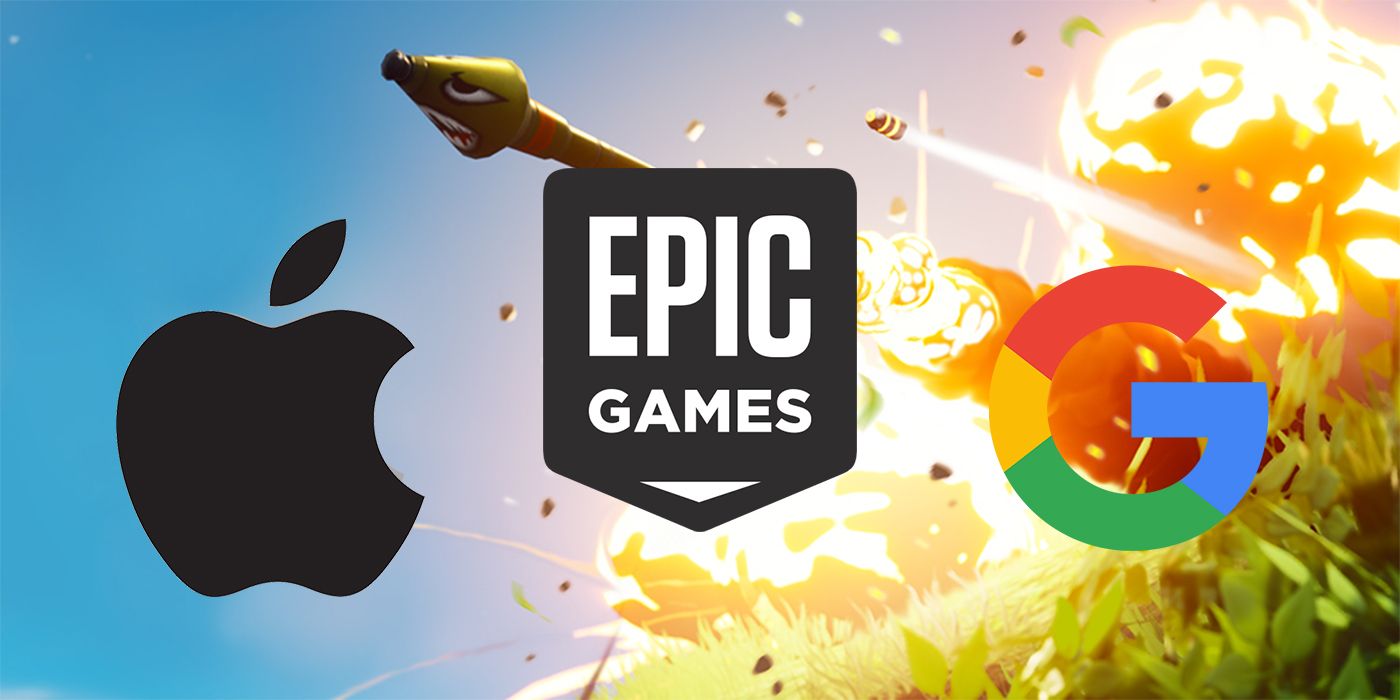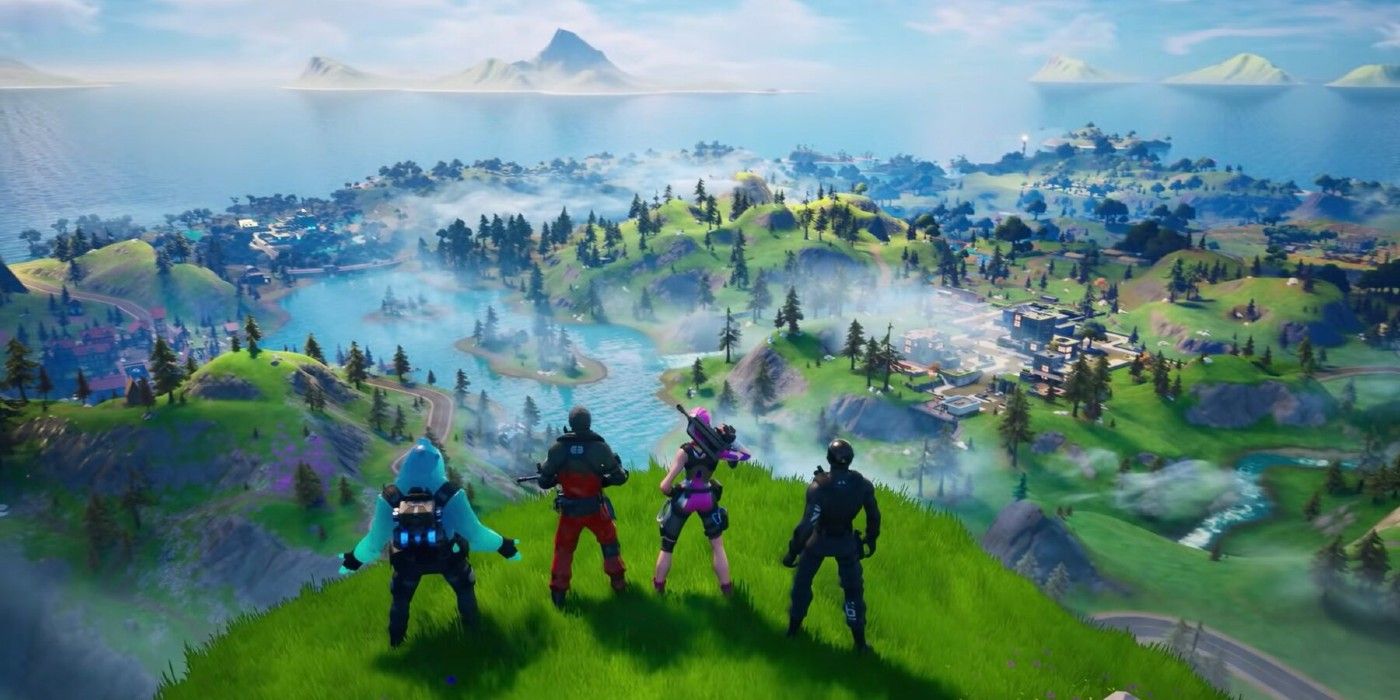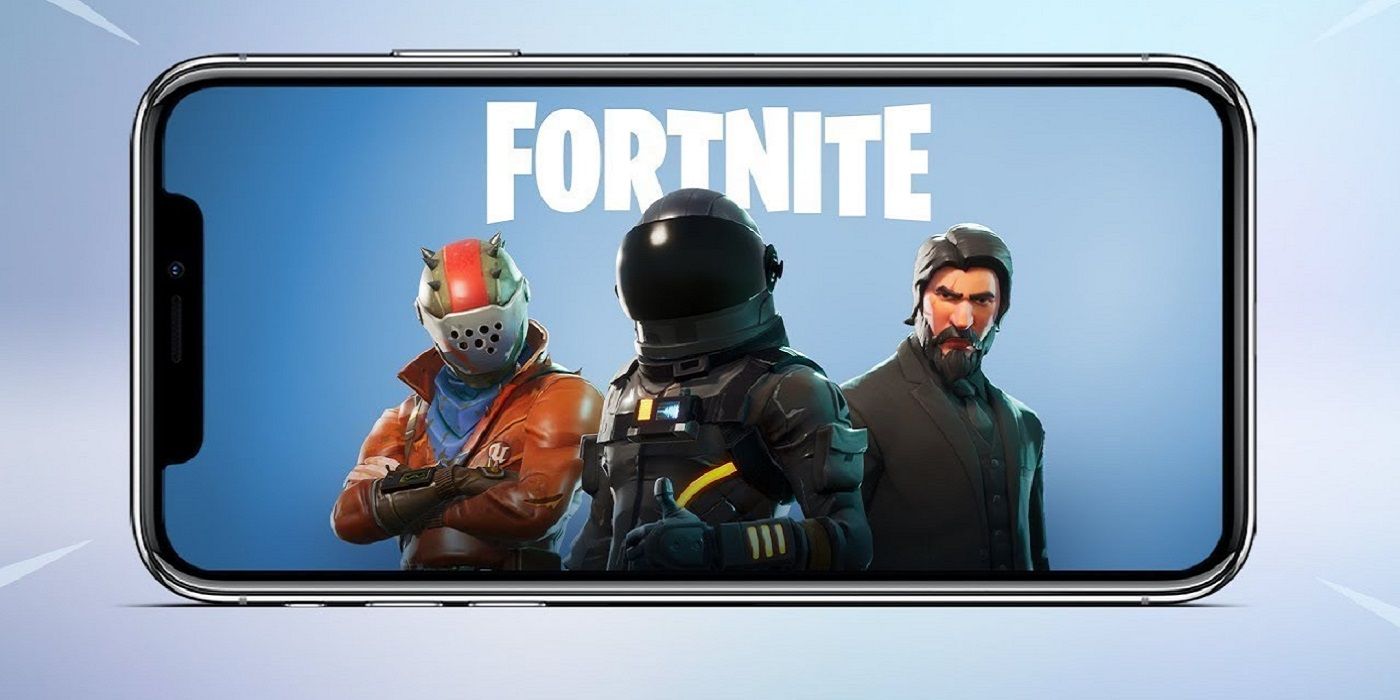Epic Games' Lawsuit Against Apple, Google Explained | Game Rant

Ever since its launch back in 2017, Fortnite quickly became a massive hit for developer Epic Games and the popular battle royale title has been available on all video game platforms just until recently. As of August 13, Fortnite is no longer available to download on mobile platforms, which means that new players won't be able to search the game on the Apple App Store and the Google Play Store.
To those unfamiliar, the reason why Fortnite was removed from the mobile market, which has been a significant source of revenue for Epic Games, is because of the developer violating the rules of the Apple App Store and the Google Play Store. Of course, those who have been closely following the relationship between the three companies would know that there has been a long-simmering dispute between the Fortnite creator and the two tech-giants, which undoubtedly hold the lion share of the global market for smartphones.
So what is the source of the conflict? What does this mean for Fortnite on mobile in the long run? And will players still be able to play Fortnite on their smartphones? At the moment, the fate of Fortnite on smartphones remains uncertain, but here is a rundown of the ongoing feud between Epic Games, Apple, and Google.

Last Thursday, August 13, 2020, Epic pulled a bold stunt that resulted in Fortnite getting removed from both the App Store and the Google Play Store. Epic Games introduced a new way for players to purchase V-Bucks, which is the in-game currency in Fortnite that players purchase using real money. This new payment method allowed players to purchase V-Bucks for 20% less should they decide to purchase using "Epic direct payment." Should players continue to purchase their V-Bucks using the traditional route of going through Apple and Google's system, they would have to continue paying the more expensive regular price.
Of course, the purpose of the discount is to encourage players to bypass Apple and Google and purchase V-Bucks directly from Epic. To those unfamiliar, Apple and Google each take a 30% commission on all purchases made within apps in the App Store and Play Store. However, going through Epic's direct payment would mean that all profits go directly to the developer while also offering huge savings to consumers, and bypassing the commission of Apple and Google altogether.

In the most basic sense, the dispute is all about money. As it turns out, this act of defiance from Epic Games, which resulted in Fortnite getting removed from both the App Store and Play Store is part of Epic's plan all along. Immediately after the removal of the game, Epic filed separate anti-trust lawsuits against the two companies, and thus, the battle between Epic and the two tech giants was born.
For quite some time now, Epic Games has been airing out its dissatisfaction with the high cut that both Apple and Google are taking from the in-game purchase revenue generated by Fortnite. The game developer has been negotiating with both companies in the past but Apple and Google were adamant that their commissions are fair for the services that they are providing, which basically distributes apps to millions of users, processing transactions, and offering safe and secured ecosystems.
Of course, app makers would rather have Apple and Google take a smaller cut of sales, especially because according to developers, there is really no viable alternative to have their apps reach millions of people given that Apple and Google hold the majority of the mobile app market.
It is also worth noting that Epic's civil lawsuits against Apple and Goole contain some differences. Unlike Apple's iOS devices, which are closed ecosystems, Android phones allow users to download apps via third-party sources such as the Epic Games app or Samsung's Galaxy Store. However, the main point of both suits shares the same idea: Epic alleges that Apple and Google's hold on app distribution and payment processing leads to anti-competitive practices that maintain monopolies in the market.

In a series of tweets released by Epic Games founder and CEO Tim Sweeney, he made it clear that Epic is not looking for any special treatment, but is hoping that Apple and Google will change their policies for all app developers. "At the most basic level, we're fighting for the freedom of people who bought smartphones to install apps from sources of their choosing, the freedom for creators of apps to distribute them as they choose, and the freedom of both groups to do business directly," Sweeney said.
Should Epic succeed and the two tech giants introduce changes to their policies, then it is likely that Fortnite will be available to download once again on the App Store and Play Store. However, should they fail, then Epic may be forced to comply with Apple and Google's terms in order for Fortnite to be able to return to the App Store and Play Store. However, it is worth knowing that Android users can download Fortnite outside of the Google Play Store. Unfortunately, the same cannot be said for iPhone users.

Yes, players can still play Fortnite on their iOS or Android devices. Those who no longer have Fortnite on their phones but have downloaded it previously are still able to re-download the game again. Unfortunately, new players won't be able to get Fortnite installed on their phones especially those using iOS devices. As previously mentioned, Android users can simply download the game from third-party sources such as the Epic Games app, Epic's own website, or Samsung's Galaxy Store for Samsung users.
However, the only downside is that mobile players will only be able to play the current version of the game. Until the feud between the three are resolved, it appears that mobile players will be locked out of downloading any future updates. This means that when Fortnite season 4 chapter 2 drops in a few weeks, mobile players won't be able to access it.
Fortnite is available now on PC, PS4, Switch, and Xbox One.

Post a Comment